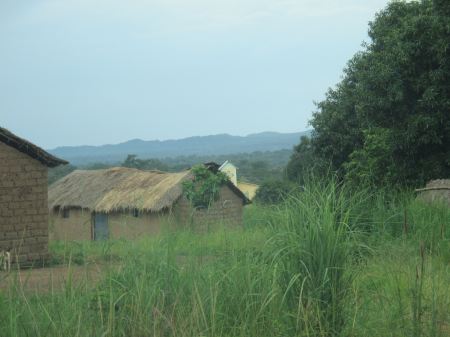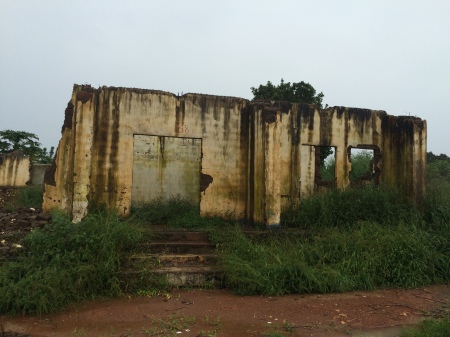Part 4 – The Elites
Laurence D. Wohlers, a former US ambassador to the Central African Republic, spoke extensively with members of the CAR’s political elite, tiny and often related through family ties. They lay the blame for their country’s decline squarely at the feet of its leaders. This, Wohlers argues, is another heritage of France, in particular its highly centralised presidential system that was emblematic of the early days of the Fifth Republic. Incidentally, references to De Gaulle, whose coup ushered in the Fifth Republic, are frequently in evidence when you travel around the country.
The elites have benefited from a relatively short period of time when education was up to standard (this period ended 35 years ago) and have all been working in government. What is striking about the CAR’s economics is that even those economic activities (outside extraction or timber) that could conceivably be done by Central Africans, particularly commerce, are all in the hands of – mainly – outsiders: French, Portuguese, Lebanese and the now dwindling Muslim community from as far afield as Senegal. It is unclear why this should be the case. You see evidence here and there of local entrepreneurship and there does not appear to have been an ideology that actively discourages business from taking off, so this is a mystery.
In asking the elites what they think went wrong, Wohlers uncovers some interesting issues. The elites insist that the past 200 years of CAR history, marked by slave hunts and colonialism, have destroyed traditional authority. This may be self-serving: in the villages this authority clearly still exists, which the political centre of the country then chooses to ignore. However, their second and very important point, and one that is constantly confirmed by people you speak to on the ground, is that there never was an issue between Muslims and Christians. The recent religious overlay of what was, fundamentally, a politico-economic problem (neglect in all spheres of life – be it health care, education, roads, water, you name it), is the result of what was perceived as Muslims joining that destructive armed gang that called itself Seleka. This triggered the response, when Muslim homes and shops (and even their mosques) were destroyed in a move that utterly devastated the local economies across the country. And even this is not universally the case. The “Muslim versus Christian” theme that international media have picked up is dreadfully simplistic at best, even when the pictures seem to suggest otherwise.
Similarly, the elites dismiss the story angle of “ethnic” preference. It was simply not there, at the very least until the presidency of André Kolingba in the 1980s. He resorted to bringing his own people for self-protecting purposes and following that, things went quite badly wrong. The elites also regret the gradual decline of the state of governance, especially since the removal, by France, of Bokassa in the first of four violent takeovers. After Bokassa, they say, civil servants began to lose their sense of duty to the nation and things slowly started to rot, like that Administrative Building on Boganda Avenue, named after Barthélémy Boganda, perhaps the best president the CAR never had. He led the independence movement since 1946 but when Independence came in sight he was killed in a plane crash that remains suspect. Mistrust of the French among Central Africans has several historical sources; this is most definitely one of them.
But what about the role the elites themselves played in all this? Here, Wohlers is a little too cautious, perhaps also because self-assessment and self-criticism are things humans the world over are not terribly fond of. What we do find, though, is that the elites’ inability to stop the destruction of their country is in part due to their inability (or unwillingness) to set up what Wohlers calls “countervailing power”. This has everything to do with pragmatism. In a patronage system, fed by two predatory systems (commercial concessions and taxation), you know which side your bread is buttered. And even though elite competition has been fierce but largely shorn of violence, rocking the boat is not an option when you want to keep your privileges and your money. So, in order to survive regime change, you re-invent yourself. None of this benefited the country in any way.

